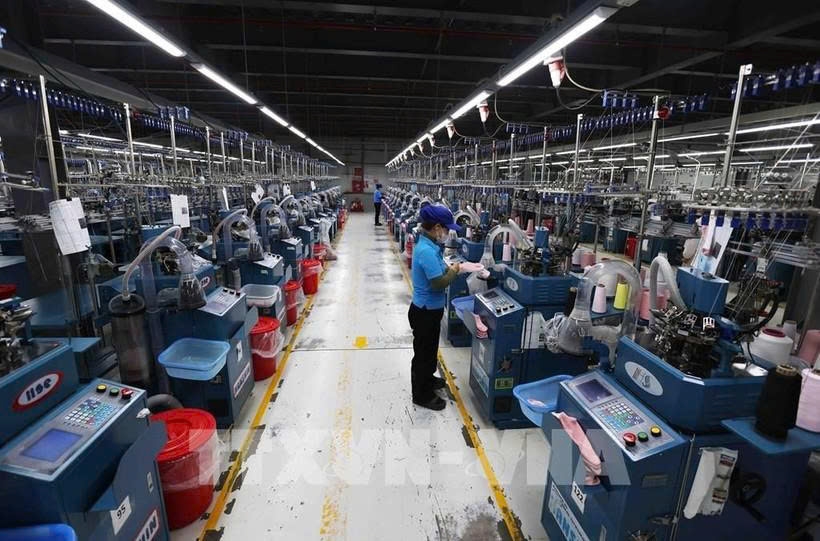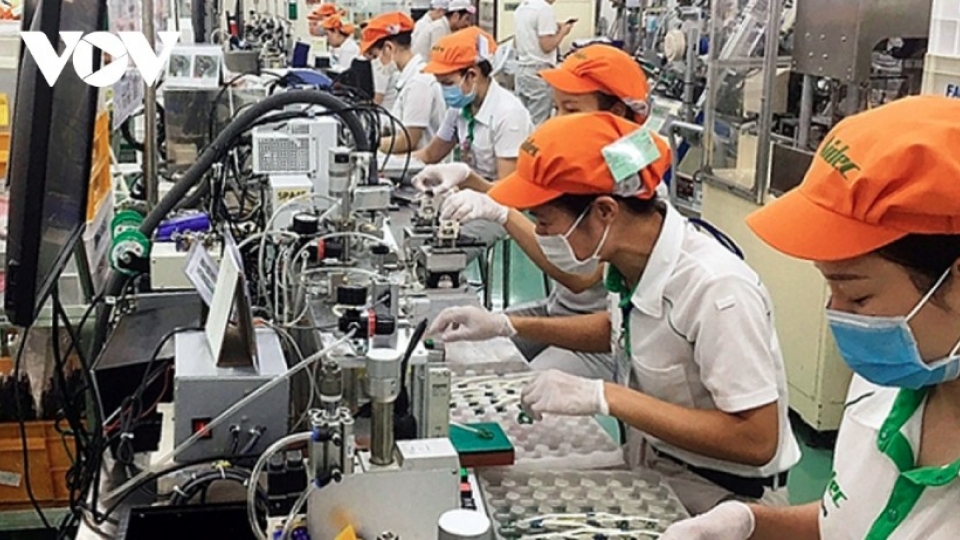Foreign investors show strong confidence in Vietnam’s long-term investment potential
Despite concerns over US tariff policies, foreign investors remain confident and continue to implement large-scale projects in Vietnam.

Stronger confidence, steadfast commitment
Last weekend, Swire Coca-Cola of the US and the UK officially inaugurated its new beverage plant in the southern province of Tay Ninh, with a total investment of US$136 million and an annual capacity of 1 billion litres. This is Coca-Cola’s largest facility in Vietnam and the first food and beverage plant in the country to achieve LEED BD+C gold certification for green building.
More than just an investment in infrastructure, it reflects the company's dedication to sustainable development and aspiration to make a meaningful difference in the communities it serves across the country, said Milly Cheng, CEO of Coca-Cola Beverages Vietnam.
The inauguration of the new plant in Tay Ninh marks a significant milestone in Coca-Cola’s journey in Vietnam, she said, adding that this state-of-the-art facility is designed to be a hub where innovation meets sustainability, a testament to the firm’s belief in the immense growth potential of this market and its long-term investment commitment in the country.
Coca-Cola is not the only investor demonstrating long-term commitment driven by confidence in the growth potential of the Vietnamese market. Denmark’s LEGO Group officially inaugurated its US$1.3-billion factory in Binh Duong (now part of Ho Chi Minh City) in early April 2025. Meanwhile, Sweden’s SYRE recently invested in a US$1-billion project in Binh Dinh (now part of Gia Lai province).
Previously, in April 2025, Nestlé announced an additional investment of US$75 million to expand its Nestlé Tri An factory in the southern province of Dong Nai, raising the facility’s total investment to US$175 million and Nestlé’s overall investment in Vietnam to over US$900 million.
This expansion reflects Nestlé’s strong belief in Vietnam’s growth potential, Binu Jacob, Chairman & Managing Director of Nestlé Vietnam said, adding that the move not only signifies business expansion but also reaffirms the company’s long-term commitment to accompanying Vietnam in the era of the nation’s rise.
Similarly, during a meeting with Minister of Industry and Trade Nguyen Hong Dien in early June 2025, Jeffrey Perlman, CEO of US-based investment fund Warburg Pincus, reaffirmed the fund’s long-term investment commitment in Vietnam. He also voiced strong support for strengthening Vietnam – US bilateral trade relations.
Many investors have made similar long-term commitments, which explains why, despite concerns over the impact of US tariff policies, foreign capital flows into Vietnam continue to grow strongly. In the first half of 2025, registered foreign investment reached nearly US$21.52 billion, up 32.6% year-on-year, the record high since 2009. The disbursed capital hit US$11.72 billion, the highest six-month figure in the past five years.
At the Coca-Cola plant inauguration ceremony, Deputy Minister of Finance Nguyen Duc Tam highlighted the investment figures as a strong affirmation of Vietnam’s success in attracting foreign investment.
Promise to accompany investors
Over the past six months, foreign investment inflows into Vietnam have remained strong. However, concerns are rising over the outlook, as the US is set to officially impose reciprocal tariffs starting August 1, 2025.
According to experts at VinaCapital, as long as the tariffs on Vietnamese goods are no more than 10% higher than those on other countries, Vietnam is still expected to remain an attractive destination for foreign investment.
According to Deputy Prime Minister Ho Duc Phoc, Vietnam calls on investors to actively invest in the country, especially in high-tech, energy, processing, services, and finance. He stated that the Government pledges to stand alongside both domestic and foreign investors.
While concerns over tariffs are real and may lead some foreign investors to take a more cautious approach in disbursing capital, especially for large-scale and long-term projects, Vietnam still holds significant advantages in attracting FDI thanks to a favourable business environment and, most importantly, the Government’s strong commitment to supporting investors.
Prime Minister Pham Minh Chinh repeatedly affirmed this commitment, saying that Vietnam’s investment environment has been continuously reformed to make it easier for foreign investors.
Special incentives are offered for large-scale projects, while streamlined “green lane” procedures are applied to certain strategic investment projects. Additionally, a one-stop investment support centre model is being piloted in several localities.
According to the Foreign Investment Agency, Vietnam’s ongoing administrative restructuring is a key factor in strengthening foreign investors’ confidence, raising expectations for deeper administrative reforms and a more transparent investment environment in the time to come.
Nevertheless, policy recommendations continue to be made to help Vietnam secure an edge in the competition for foreign investment attraction, especially amid potential challenges posed by the US’s tariff policies that can impact global investment flows.
Nguyen Hong Chung, Chairman of DVL Ventures and Vice Chairman and Secretary General of the Vietnam Industrial Park Finance Association (VIPFA), said local authorities should engage with investors early, starting from the idea-making and planning stages to facility construction, instead of only stepping in after site selection has been finalised.



